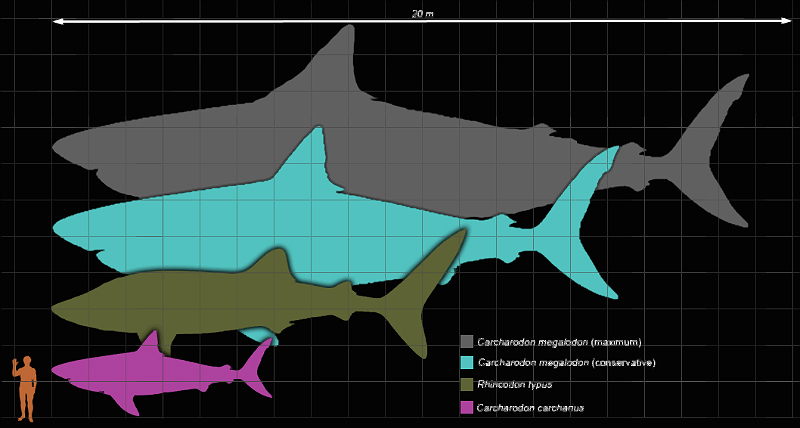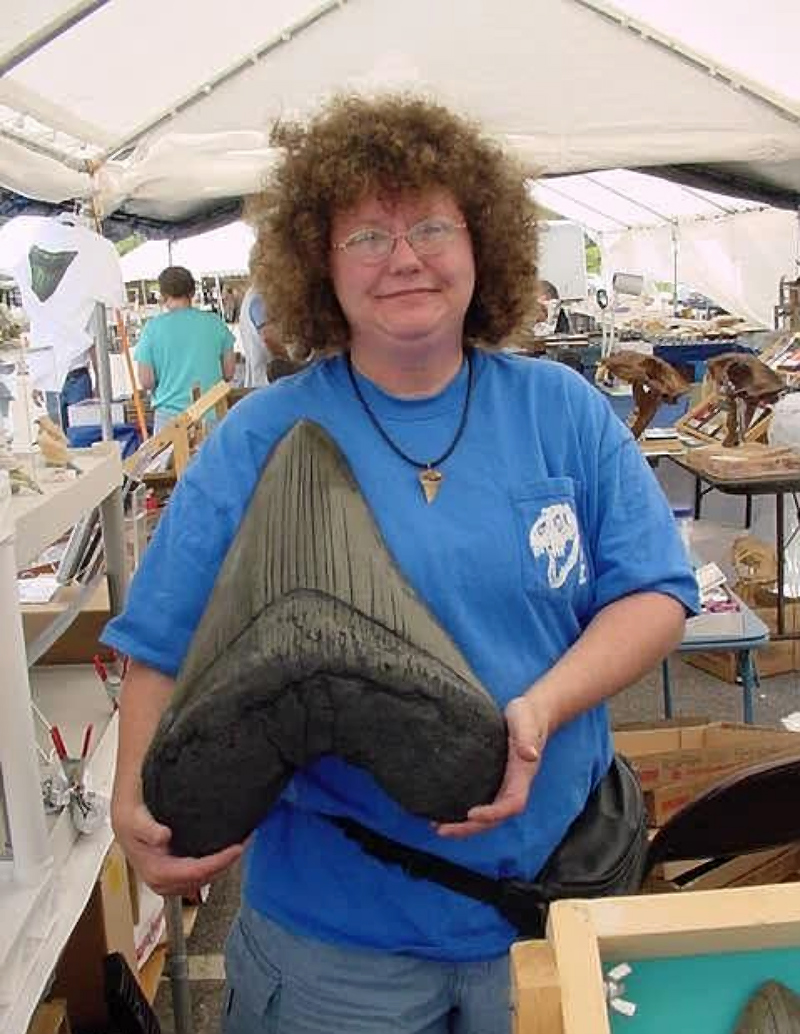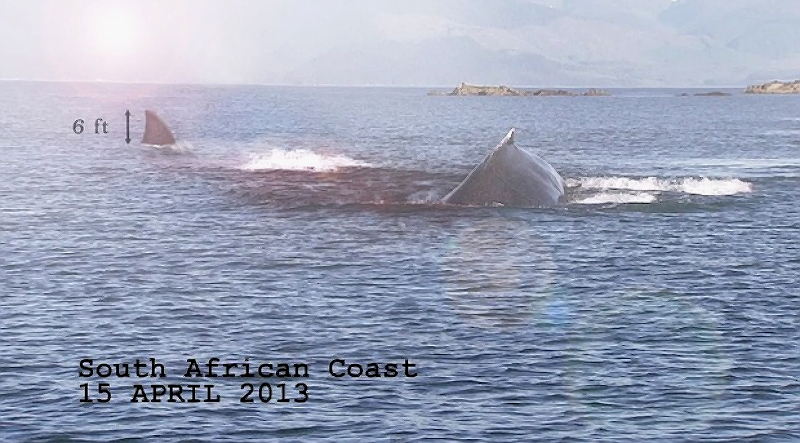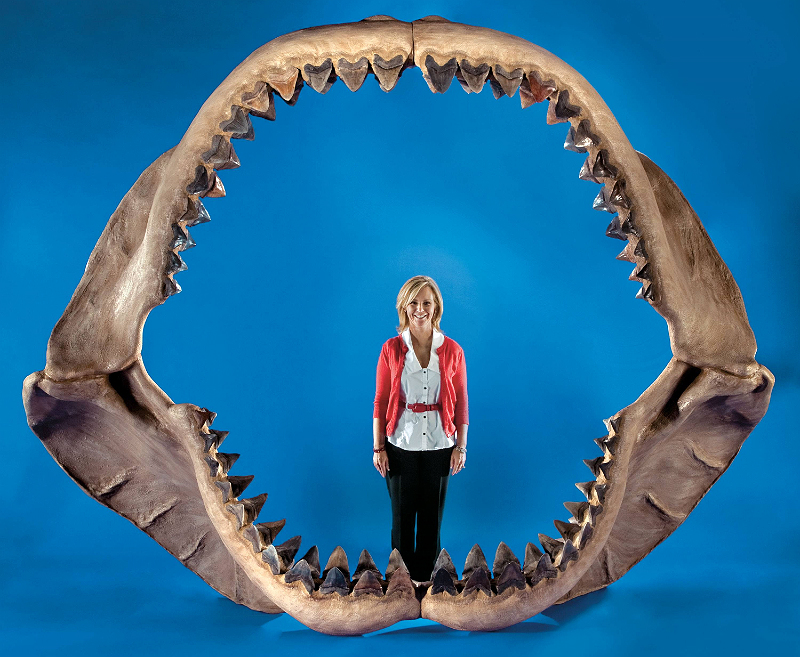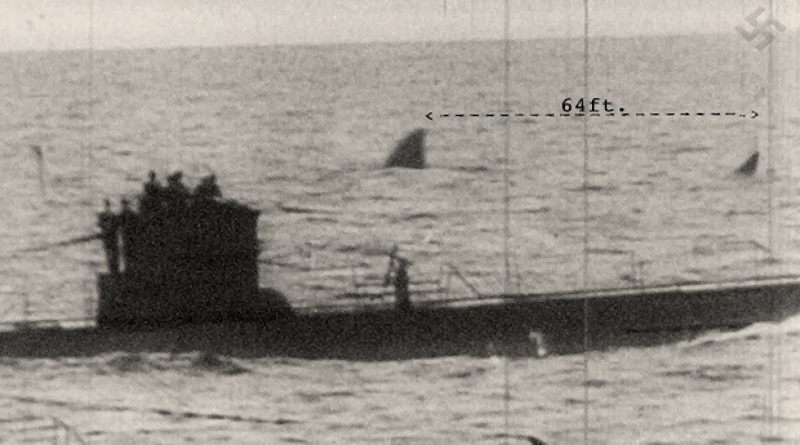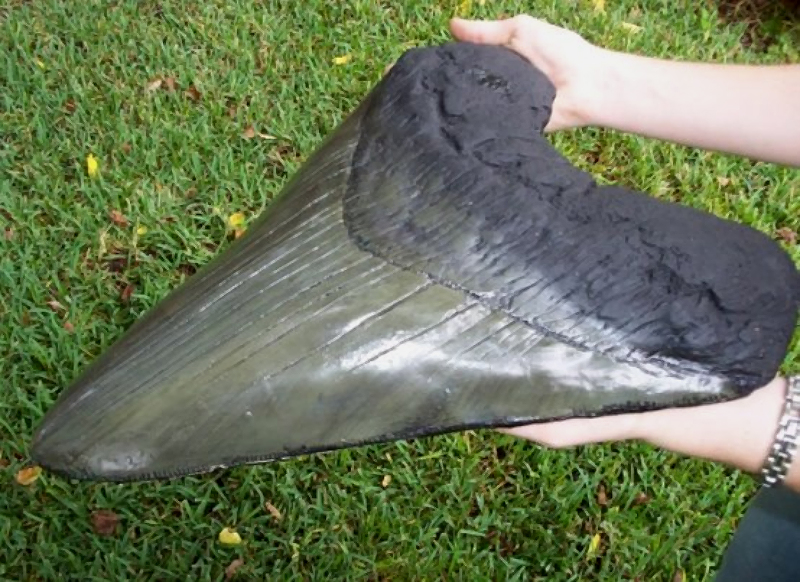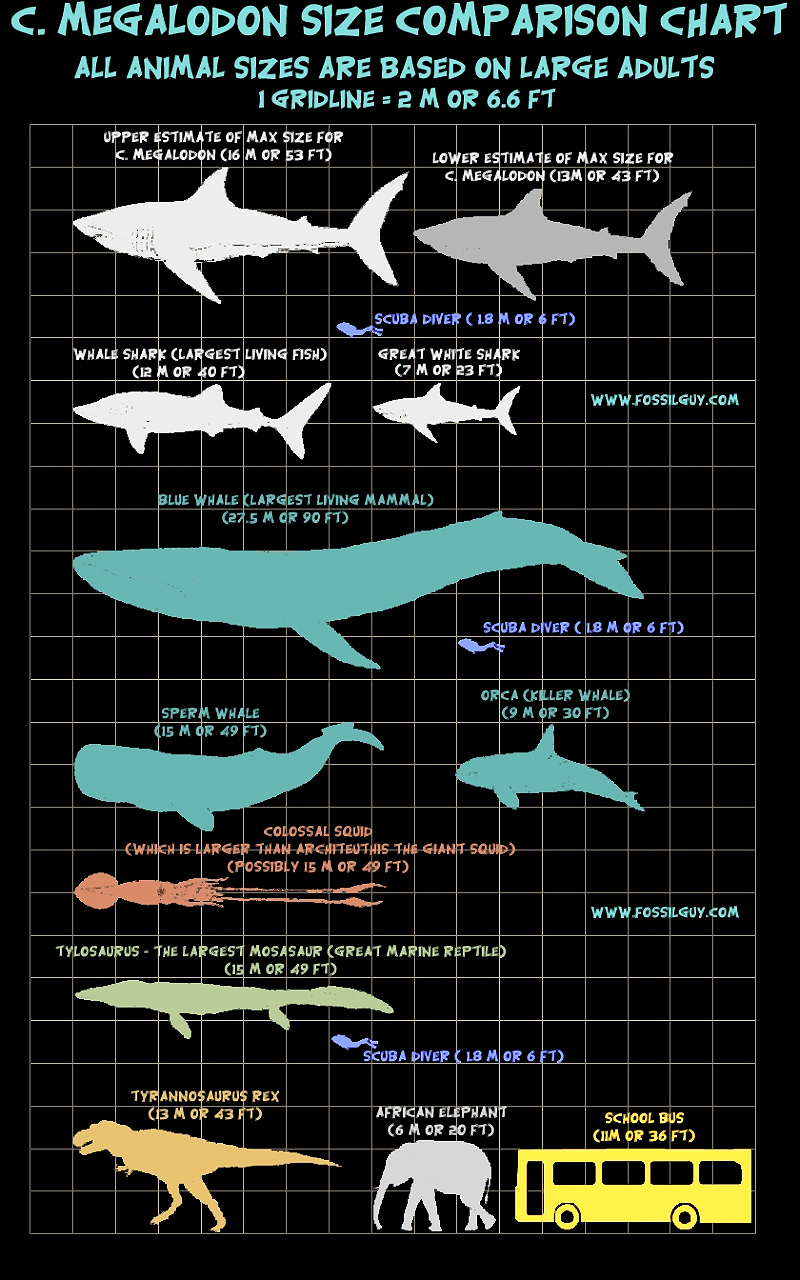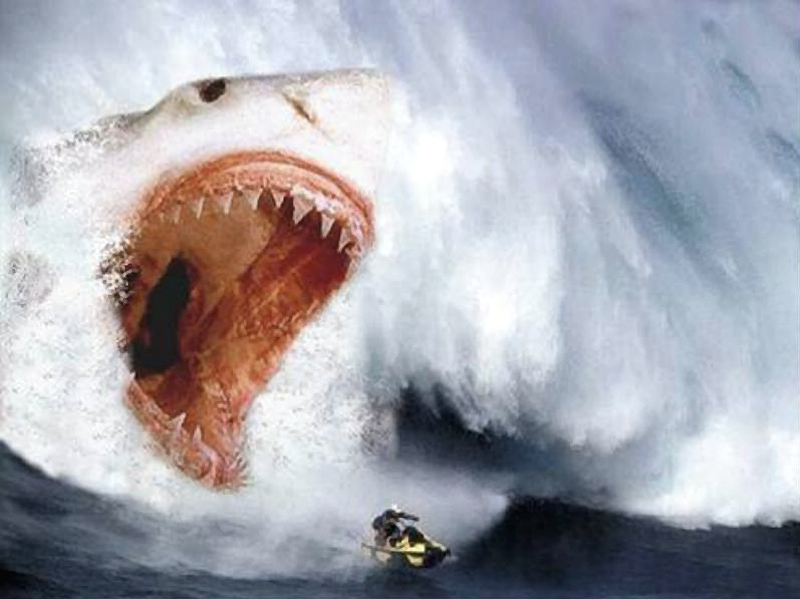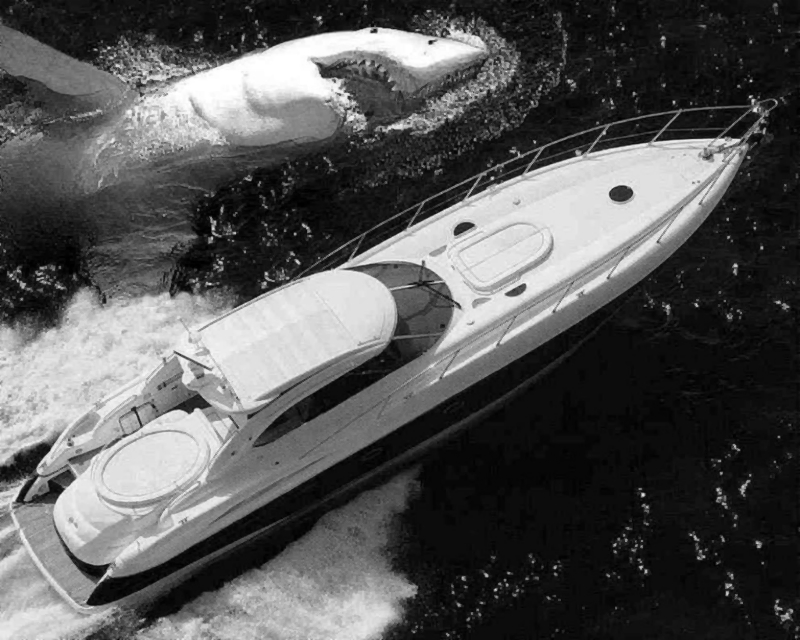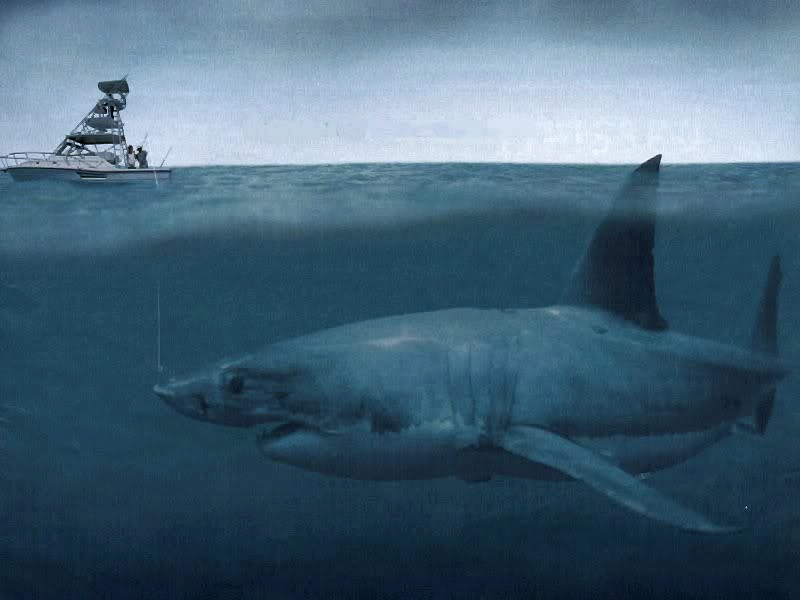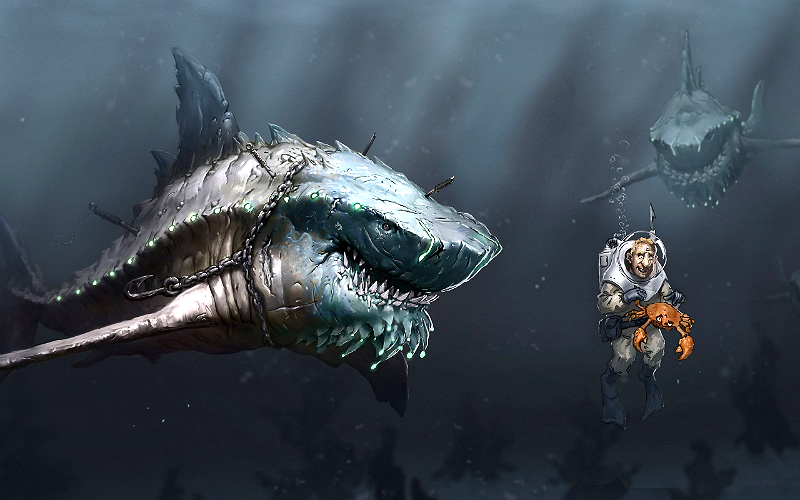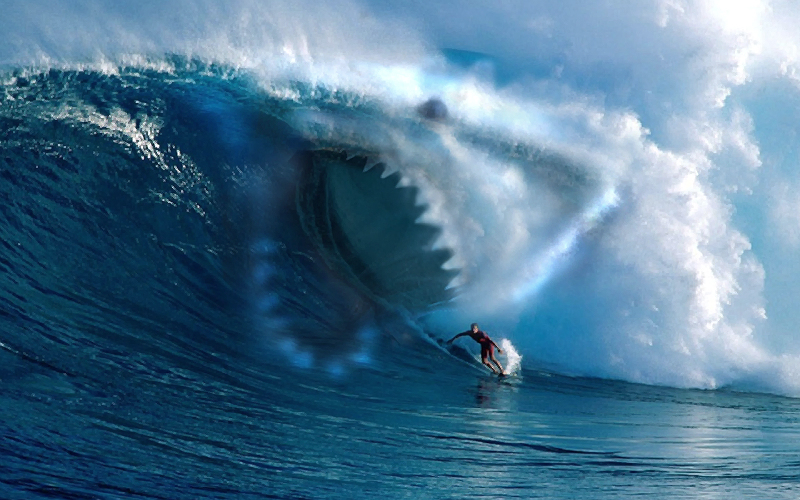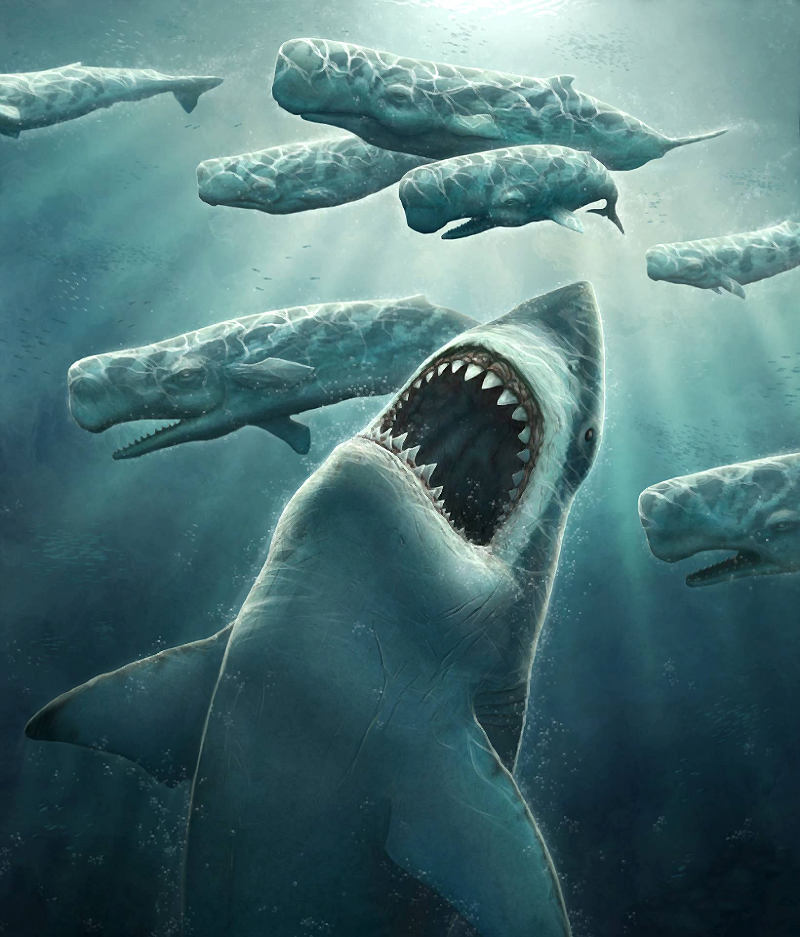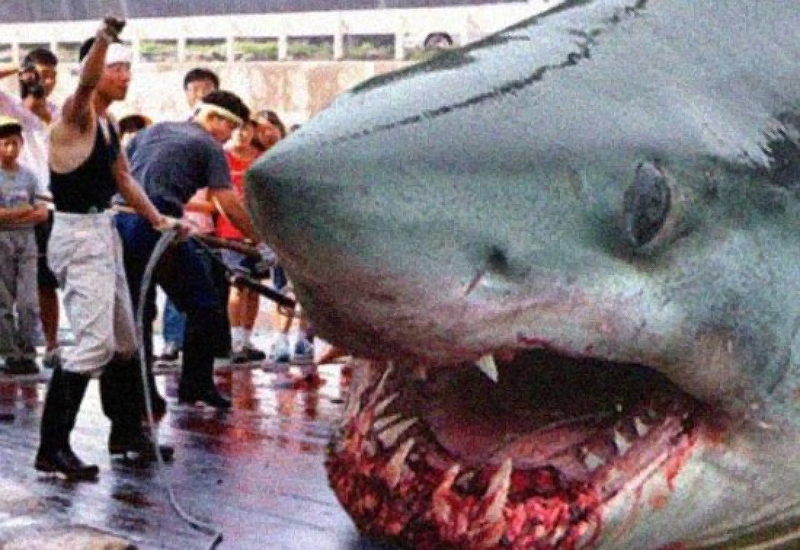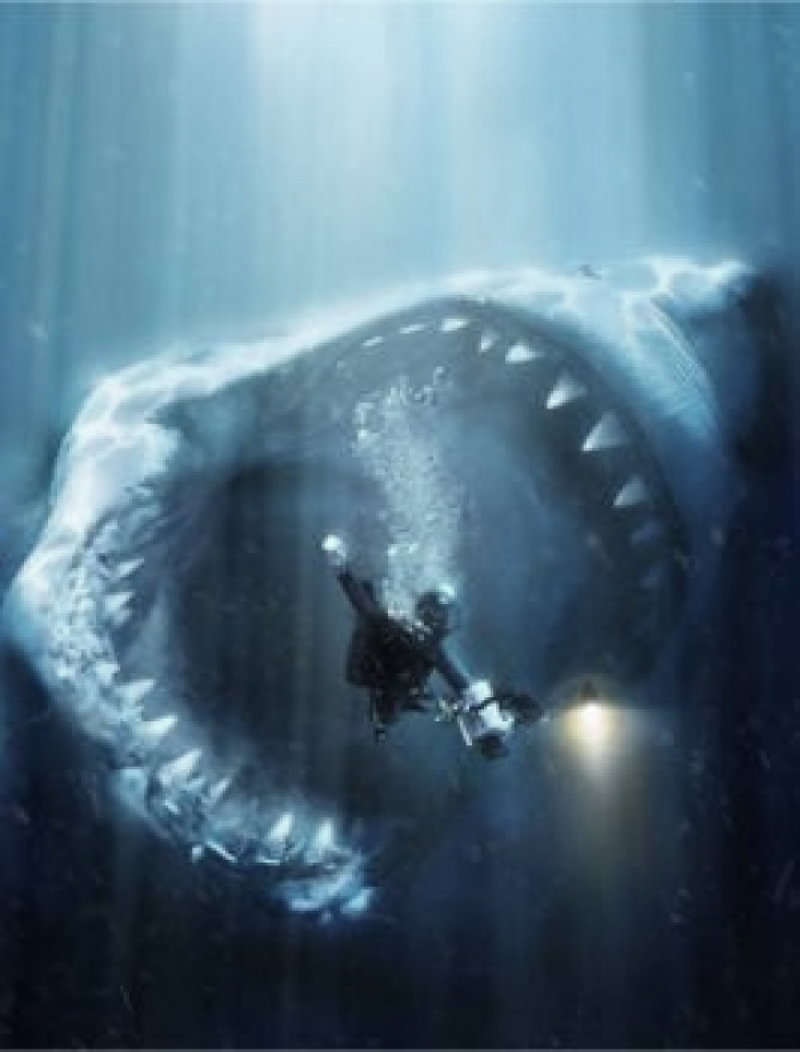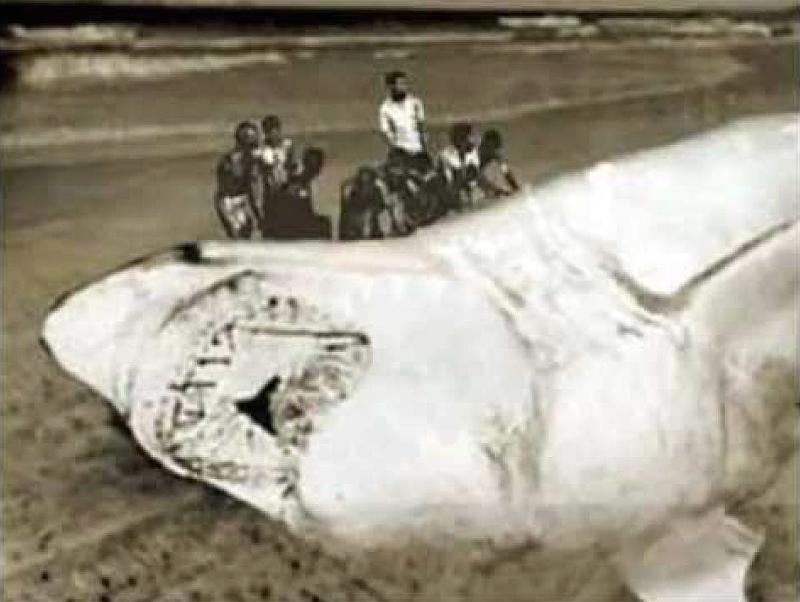It looks like you're using an Ad Blocker.
Please white-list or disable AboveTopSecret.com in your ad-blocking tool.
Thank you.
Some features of ATS will be disabled while you continue to use an ad-blocker.
share:
I am willing to bet that Megalodon is still out there and alive and well. We know very little about our Oceans and what dwells there.
originally posted by: Snaffers
Swiss naturalist Louis Agassiz gave this prehistoric shark its scientific name, meaning “ bigtooth,” in 1835. Based on similarities between its teeth and those of the great white shark,Agassiz classified them as relatives, but some modern ichthyologists dispute that claim. Re-construction of the shark ’s jaw in 1909, using the largest teeth available, produced a 120-ft.monster, but subsequent estimates range from 50 to 80 ft long. In either case, and by anyname, megalodon remains the largest shark known to science.Is it still alive?Most ichthyologists believe megalodon died out around 1.5 million years ago, but fossilevidence suggests that they are wrong. The British research ship Challenger dredged up two megalodon teeth from the Atlantic, at a depth of 14,000 feet, in 1875. Dr. WladomirTschernezky analyzed the teeth at London’s Queen Mary College in 1959, and reportedthat one was 24,000 years old and the other no more than 11,000 years old. His findingslend credence to several reports of giant sharks resembling great whites recorded duringthe 20th century.• 1918: Australian fishermen reported an encounter with a monstrous shark nearBroughton Island, off the coast of New South Wales. The shark swallowed several 3-ft.-wide crayfish traps with “ pots, mooring lines, and all.” Estimates of its length ex-ceeded 100 feet, perhaps exaggerated by fear. All agreed that the beast was a shark“of the White Death type,” and not a whale.• 1927: American novelist Zane Gray saw a shark longer than his 40-ft. boat while fish-ing off the Polynesian island of Rangiroa.• 1933: Gray ’s son, Loren, saw a nearly-identical shark while sailing 100 miles north-west of Rangiroa. He described it as 40 to 50 ft. long, with a head 10 to 12 ft. wide, andinsisted that it was not a whale shark.• 1950s: Author Thomas Helm watched a large shark resembling a great white swimunder his 60-ft. boat in the Gulf of Mexico. Helm said that the fish “ was not an inchless than 30 feet ” long, and that when it was under the fishing boat, its pectoral finsprotruded on either side.• March 1954: While riding out a storm near Timor, Indonesia, sailors aboard the RachelCohen felt a violent blow against the keel. They later found 17 shark ’s teeth embeded in the hull, averaging 4 in. long and 3 in. wide. Ichthyologist John Randall, atHawaii’s Bishop Museum, estimated the shark must have been 36 - 46 ft. long.While no megalodon has yet been killed or caught alive, the species enjoys a measureof celebrity through horror novels and films. Novels involving relict megalodons in-clude Charles Wilson’s Extinct (1997), Cari McKnight ’s From the Dark Below (2001), and awhole series from author Steve Alten: Meg (1997), The Trench (2000), Meg: Primal Waters (2004), and Meg: Hell ’s Aquarium (2008). Films depicting megalodons at large include Shark Hunter (2001), Shark Attack 3: Megalodon (2002), Megalodon (2004), and the Aus-trian production Hai-Alarm auf Mallorca (2004). Further Reading: Renz, M. Megalodon: Hunting the Hunter. ( Lehigh Acres, FL: Paleo Press,2002)
There was something very fishy about that claim here ---->
"The British research ship Challenger dredged up two megalodon teeth from the Atlantic, at a depth of 14,000 feet, in 1875. Dr. WladomirTschernezky analyzed the teeth at London’s Queen Mary College in 1959, and reportedthat one was 24,000 years old and the other no more than 11,000 years old."
Cannot remember what exactly it was...
Source: Hidden Animals A Filed Guide
1st: The Science ------>
2nd: The Fun ------>
3rd: Some Great Vids ------>
PS: Who knows what is hiding in the deep? :p
Just read the entire thread, oroginal video thoroughly debunked, but this post is the best.
a reply to: Snaffers
Every now and then something pops up I'm familiar with and I've collected and sold some pretty large teeth in the past. I regret that these days as I only have a couple of five or so inch examples now, but excellent ones.
The largest ever found is well under 8 inches and even though anything over 7 inches means Megalodon was a monster, a couple of those images are clearly Photoshopped. Unless of course that woman is the size of three year old child.
Scale that back to reality and it's still one heck of a scary shark. I know from my days in construction when young, my hand is exactly 7.5 inches from the tip if my middle finger to the first fold at the heel of my hand. The largest I've seen or held would not cover my hand. The largest ever would just barely do so.
More to the general topic, I'd not be too shocked if it turned out a few live ones had escaped notice and may one day be found.
Every now and then something pops up I'm familiar with and I've collected and sold some pretty large teeth in the past. I regret that these days as I only have a couple of five or so inch examples now, but excellent ones.
The largest ever found is well under 8 inches and even though anything over 7 inches means Megalodon was a monster, a couple of those images are clearly Photoshopped. Unless of course that woman is the size of three year old child.
Scale that back to reality and it's still one heck of a scary shark. I know from my days in construction when young, my hand is exactly 7.5 inches from the tip if my middle finger to the first fold at the heel of my hand. The largest I've seen or held would not cover my hand. The largest ever would just barely do so.
More to the general topic, I'd not be too shocked if it turned out a few live ones had escaped notice and may one day be found.
new topics
-
Paradox of Progress
Ancient & Lost Civilizations: 3 hours ago -
Joe Biden gives the USA's Highest Civilian Honor Award to Hillary Clinton and George Soros.
US Political Madness: 5 hours ago -
Winter Storm
Fragile Earth: 6 hours ago -
Biden Face Planted Somewhere
Politicians & People: 8 hours ago -
A great artist and storyteller, for kids of all ages
General Entertainment: 8 hours ago
top topics
-
Joe Biden gives the USA's Highest Civilian Honor Award to Hillary Clinton and George Soros.
US Political Madness: 5 hours ago, 13 flags -
What Is 'Quad Demic'? Mask Mandate Returns In These US States
Diseases and Pandemics: 12 hours ago, 11 flags -
Volcano Watch 2025
Fragile Earth: 14 hours ago, 8 flags -
The Future of fashion .
Social Issues and Civil Unrest: 12 hours ago, 8 flags -
Winter Storm
Fragile Earth: 6 hours ago, 7 flags -
Bin Cyber Junk…
Short Stories: 13 hours ago, 6 flags -
Biden Face Planted Somewhere
Politicians & People: 8 hours ago, 5 flags -
A great artist and storyteller, for kids of all ages
General Entertainment: 8 hours ago, 5 flags -
Paradox of Progress
Ancient & Lost Civilizations: 3 hours ago, 4 flags -
The Undertones - Teenage Kicks
Music: 14 hours ago, 3 flags

